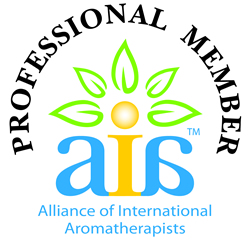Fresh and Natural Lemon and Peppermint All-Purpose Cleaner
- Elizabete Desire' Freijs
- Oct 15, 2019
- 4 min read
How a Natural Household Cleaner can Better Your Everyday Life
In our everyday lives we come in contact with many different types of chemicals. Many use an all-purpose cleaner in the kitchen on a daily basis. Some use a different one in the bathroom. And yet another one for mirrors and other glass surfaces.

I do not remember the last time I saw a friend or relative regularly use gloves while cleaning. My mother used to use rubber gloves daily, washing the dishes and regular cleaning, but this was mainly because she was concerned about her hands and manicure :). I know that she knew the cleaners would dry her hands out, but I don’t believe that she understood just how much of the chemicals would be absorbed through her skin.
Not only do the chemicals enter our bodies through the skin, they also have fumes that enter our lungs, and therefore bloodstream. The bad fumes are often masked by lemon, pine, and orange scents. But the fumes are still there, and the nice aromas are most likely synthetic. I know a few people who have sensitivities to the perfumes added. In the long term this may have negative effects on our bodies.
Wouldn’t it be nice to eliminate some of the chemicals that we come into contact with every day? Just think about how older generations may have cleaned. They may have used natural blends that were most likely, handed down from generation to generation.
I am going to share with you my go to recipe for an everyday cleaner. I use it in the kitchen, mirrors, and the bathroom (sink and countertops, outside of the toilet, and even the shower). For many the shower enclosure can be a difficult clean, but my household has gotten used to using a squeegee and microfiber cloth to dry after each use.
Lemon and Peppermint All-Purpose Cleaner
1 oz. Grain Alcohol (190 proof)
3 oz. Distilled Water
1 tablespoon White Vinegar
20 drops Lemon (Citrus limon) essential oil
10 drops Peppermint (Mentha x piperita)
Measure out the grain alcohol and add the essential oils. Let sit for about an hour. Pour into spray bottle (preferable glass or PET plastic. I use an Amber PET spray bottle). Then add the distilled water and white vinegar. Shake well and use.
Why Alcohol
Any water-based blend without a preservative can itself develop bacteria. For this blend we want to make sure that the cleaner is in itself clean. I have seen quite a few recipes on the internet that call for cheap vodka. The problem is that in order for the essential oil to properly blend with the essential oils and act as a preservative we need 190 proof alcohol1. At this proof, the essential oils can bind to the alcohol and be dispersed.
Should you decide not to use alcohol, make sure you use the cleaner within a couple of weeks. Shake well before and during use.
Why Distilled Water
Normal tap water can have various impurities. Distilled water has had these taken out and therefore is less likely to develop bacteria, provided the cleaner is used and not stored for an extended period of time.
Why Vinegar
Vinegar is used in many glass cleaners. My Mom always added vinegar to her window washing solution. It helps to keep the streaks downs when washing mirrors and windows.
Many of us do not like the smell of vinegar, but I have found that the combination of alcohol and essential oils mask out a large amount of the odor, if not all.
Why Lemon
Historically, lemons have been used as a natural cleaner. Besides the fresh aroma of lemon, this essential oil has many wonderful properties that makes it an ideal addition to a cleaning product. It has antimicrobial, antiseptic, and antibacterial properties. It also has emotionally uplifting properties. So, while you are cleaning your home, these properties are also working on you.
Why Peppermint
While peppermint is not traditionally used in cleaning products, it has antibacterial properties. It’s strong aroma help mask the vinegar smell, while being uplifting within itself.
Suggestions on Lemon and Peppermint All-Purpose Cleaner Use.
Even though there is alcohol in the ingredients, I still like to shake the spray bottle before and during use. I find that using a microfiber cloth with this solution leaves my surfaces nice and shiny. If I have a lot of soil, like around the stovetop, I will clean first using a paper towel, then squirt again and clean with the microfiber cloth.
Summary
On a daily basis, we come in contact with a variety of chemicals that we have no control over, but in certain areas we have the power and tools to manage how much gets into our system. Many people suffer from various issues, such as headaches, skin sensitivities, and allergies that are exacerbated by the use of chemical cleaning products. But all of us can benefit by switching to more natural products.
However, we must remember, that essential oils are very powerful. While we can play around with the dilutions a bit, we must remember that too much of a good thing can have adverse effects. But we should not be afraid to use them per the ingredients listed above.
So, wouldn’t it behoove us to try to be more natural where we can. Not only will you be able cut out a portion of the chemicals you come into contact with, but you will feel energized as well, since these essential oils not only have cleaning properties, but many different therapeutic properties as well.
Happy cleaning!!
ELizabete Desire’ Freijs, NAHA Certified Professional Aromatherapist
1 (Moore, J.L., The Tisserand Institute, retrieved 10/14/19. https://tisserandinstitute.org/effective-use-alcohol-aromatic-blending/). At this proof, the essential oils can bind to the alcohol and be dispersed.




